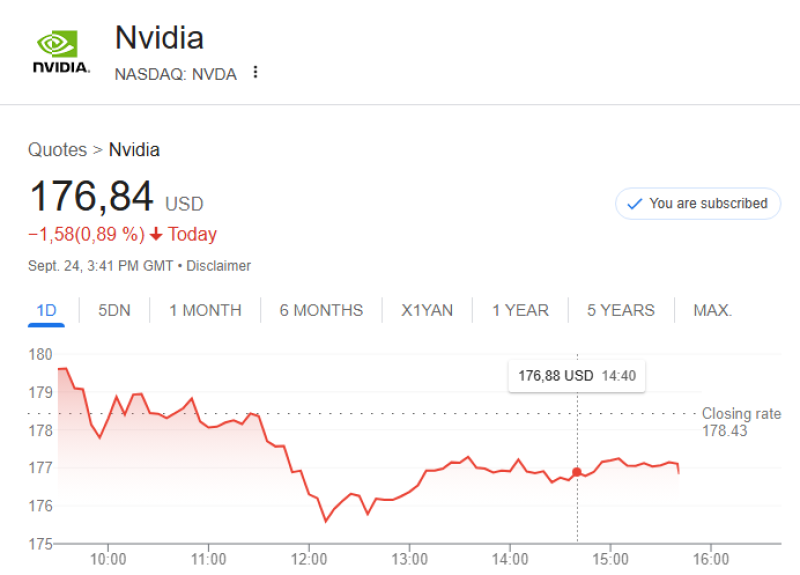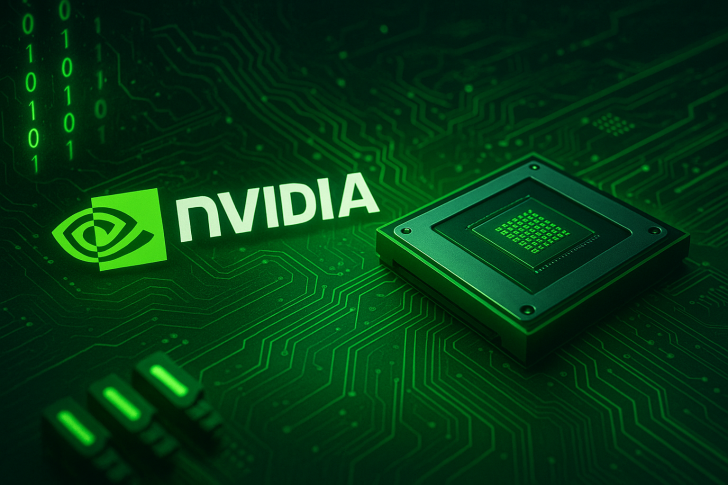A major insider transaction at Nvidia is catching Wall Street's eye. Director Mark Stevens unloaded 350,000 shares worth approximately $61.7 million on September 19, according to SEC filings. The sale, executed at an average price of $176.39, represents one of the month's largest insider disposals and has sparked fresh debate about whether company insiders see trouble ahead or are simply taking profits after the stock's remarkable run.
The Sale Details
The transaction, first spotted by Ted, comes at a delicate moment for the AI chipmaker as its shares hover near technical support levels.
Stevens' massive disposal stands out for both its size and timing. While board members routinely sell shares for portfolio diversification or personal financial planning, moving 350,000 shares in a single transaction sends a louder signal to the market. The veteran director has previously trimmed his holdings during previous rallies, but this latest move dwarfs his typical selling activity.
The timing is particularly noteworthy. Nvidia's stock had been trading sideways near record highs before showing signs of fatigue, and Stevens' sale coincided with increased selling pressure across the broader market.
Technical Picture
Nvidia closed at $178.43 on September 24, dropping 2.82% as selling volume picked up. The stock now faces a critical test of its $176 support level, with the next major floor around $170. On the upside, resistance remains stubborn between $183-185, a zone that has repeatedly capped rally attempts in recent weeks.

The broader uptrend that carried NVDA to astronomical heights remains technically intact, but the combination of insider selling and weakening momentum suggests the stock could be vulnerable to a deeper pullback if these support levels crack.
Why This Matters
Three factors make this insider sale particularly significant. First, Nvidia's sky-high valuation leaves little room for error, making any hint of insider pessimism especially impactful. Second, the company's explosive growth has been built almost entirely on AI chip demand, and questions are mounting about whether this pace can continue as competition intensifies. Finally, large insider sales often create psychological headwinds regardless of the seller's actual motivations, potentially triggering copycat selling among retail investors.
 Usman Salis
Usman Salis

 Usman Salis
Usman Salis


